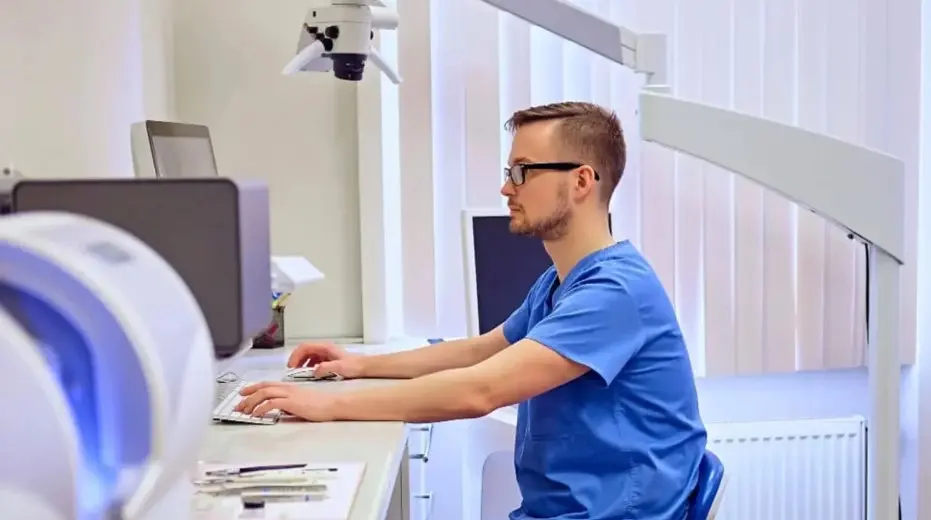Introduction to Hospital Workflow Optimization
Hospital workflow optimization involves enhancing efficiency within healthcare facilities to improve patient care, streamline processes, and better manage resources. Given the increasing demand for healthcare systems globally, these optimizations are becoming more crucial than ever. Healthcare facilities are consistently looking for ways to address bottlenecks, whether via human resources or technology, ensuring care delivery is both timely and effective. By implementing dynamic strategies such as acuity nursing, healthcare providers not only respond to the immediate needs of patients but also plan proactively, creating a smoother and more predictable workflow.
The Importance of Efficient Workflows in Healthcare
Efficient workflows are the backbone of a well-functioning healthcare facility. They alleviate patient wait times, contribute to lowered operational costs, and, notably, heighten patient satisfaction. According to the Institute for Healthcare Improvement, hospitals with adequately optimized workflows experience significant improvements in staff morale and retention rates, fostering a supportive and collaborative environment. This holistic approach not only supports patient well-being but also instigates a work culture where healthcare workers feel valued and motivated. Providers can thus deliver care that is proactive rather than reactive, significantly improving patient outcomes.
Common Challenges and Solutions in Streamlining Hospital Operations
Hospitals face challenges such as communication breakdowns, inefficient resource allocation, and complex patient data management, often worsened by outdated systems and resistance to change. Remote human receptionists at My Mountain Mover, working off-site, can address these issues by handling administrative tasks like greeting patients, scheduling appointments, and directing visitors. By connecting with unified communication platforms, they improve coordination and ensure smooth service. This frees up on-site staff for critical tasks, optimizing resource allocation. Supportive technologies like Electronic Health Records (EHR) systems, patient management software, and AI-driven scheduling tools further enhance hospital operations. This proactive approach boosts patient interactions, hospital efficiency, and staff productivity.
Leveraging Technology for Better Patient Care
Technological advancements like electronic health records (EHRs) have revolutionized how data is collected and shared across hospitals. This transformation has led to a more integrated approach in care delivery, where patient history is readily accessible and consistent across various departments. A report by HealthIT.gov underscores how facilities that implement EHRs see improvements in care delivery and coordination, ultimately benchmarked by higher patient satisfaction scores and reduced incidences of medical errors. This technological implementation allows for a seamless flow of information, ensuring that patients receive comprehensive care tailored to their unique medical histories.
The Role of Artificial Intelligence in Healthcare Efficiency
Artificial Intelligence (AI) is at the forefront of revolutionizing healthcare efficiency by delivering cutting-edge predictive analytics and performing routine tasks with unprecedented accuracy. With AI, hospital systems can analyze vast datasets to predict patient outcomes more accurately, manage patient intake, and even streamline scheduling, reducing wait times and improving resource allocation. These AI-infused tools enhance diagnostic precision, offering insights that are not immediately apparent through traditional means. As technology develops, the automation of repetitive tasks allows healthcare professionals to prioritize direct patient care, improving both patient satisfaction and the quality of care provided.
Case Studies: Successful Hospital Workflow Transformations
Several hospitals showcase successful examples of workflow optimization through real-time location systems (RTLS). By incorporating RTLS, hospitals have drastically reduced the time needed to locate equipment or personnel, thereby eliminating unnecessary delays. This innovation results in smoother operations, decreased costs, and time savings that directly benefit patient care. By highlighting such successful implementations, other institutions can draw inspiration and recognize the tangible benefits of prioritizing workflow optimization. These case studies serve as valuable testimonies for other hospitals aiming to transform their operational strategies.
Conclusion
Achieving optimal hospital workflows is a multifaceted challenge that necessitates innovative thinking and the strategic adoption of new technologies. Healthcare providers may guarantee better patient results, increased employee happiness, and the long-term viability of the healthcare system by putting a strong emphasis on putting effective systems into place. By embracing these changes, hospitals position themselves at the forefront of care delivery, creating environments that benefit both patients and healthcare providers alike.
Also Read-Essential Tips for Preparing Your Home for an Elderly Relative
